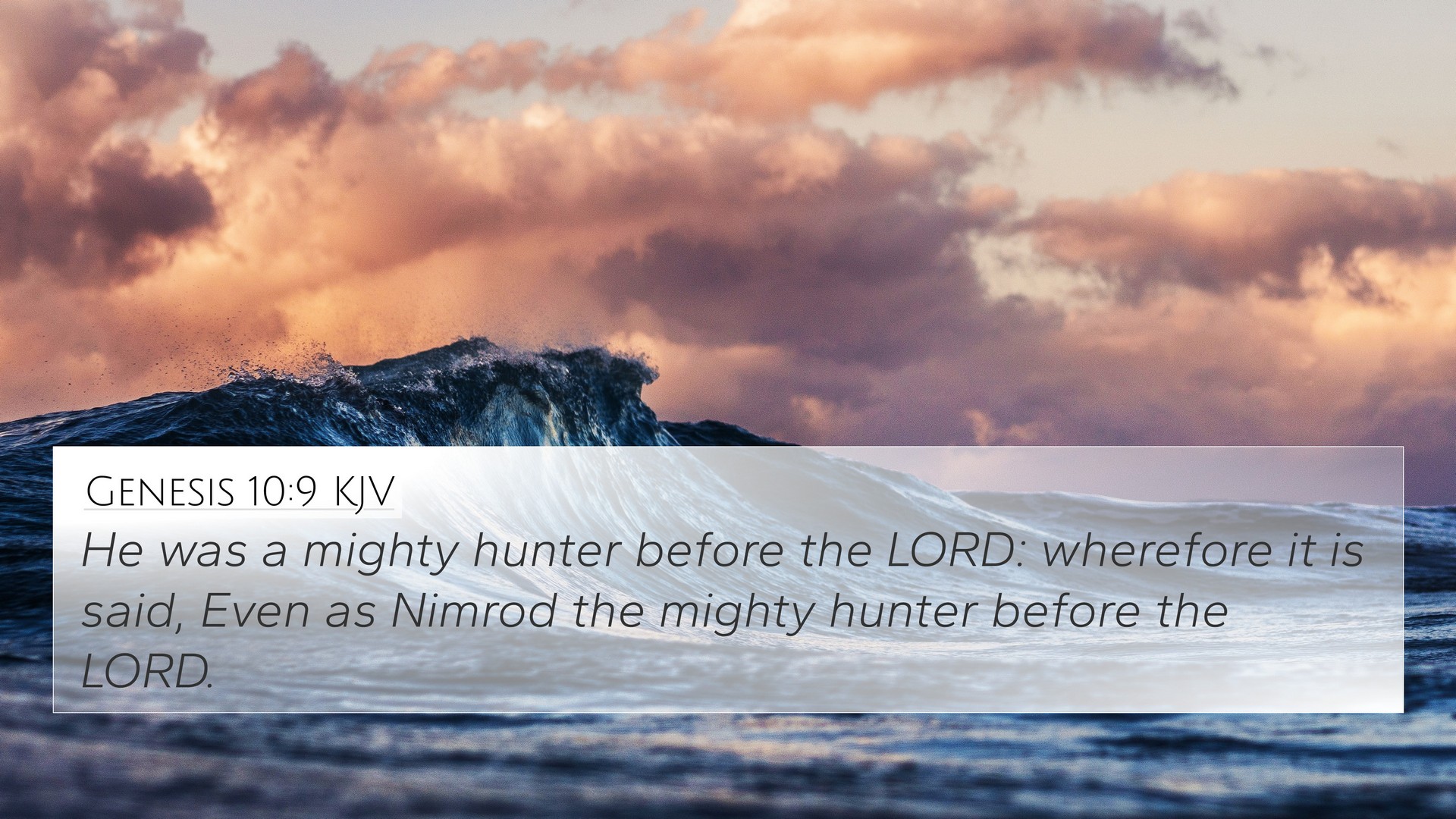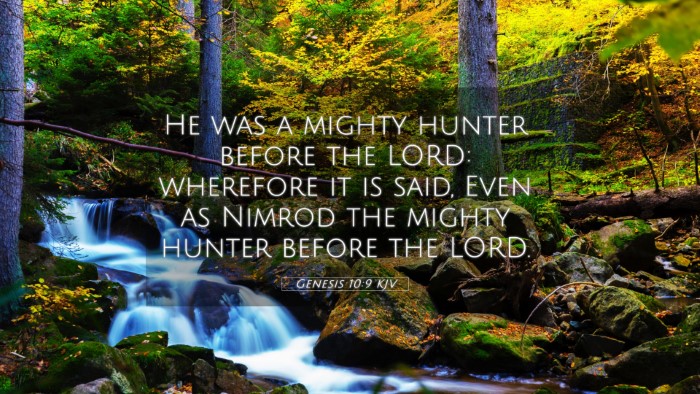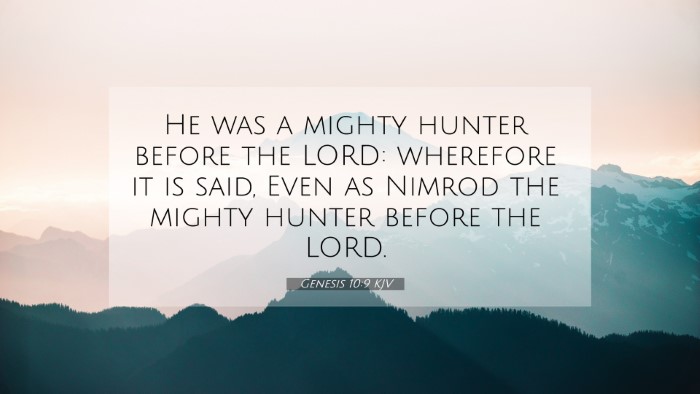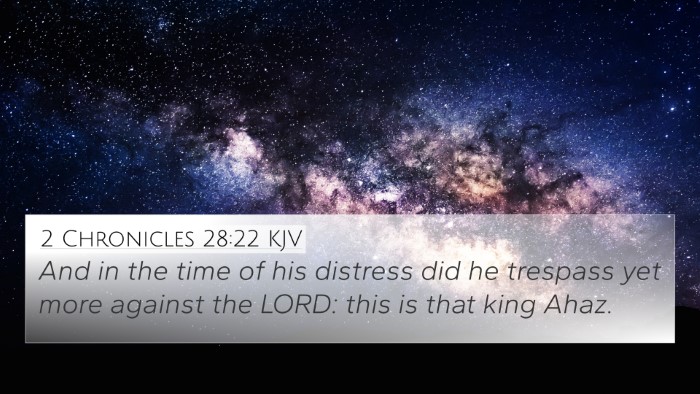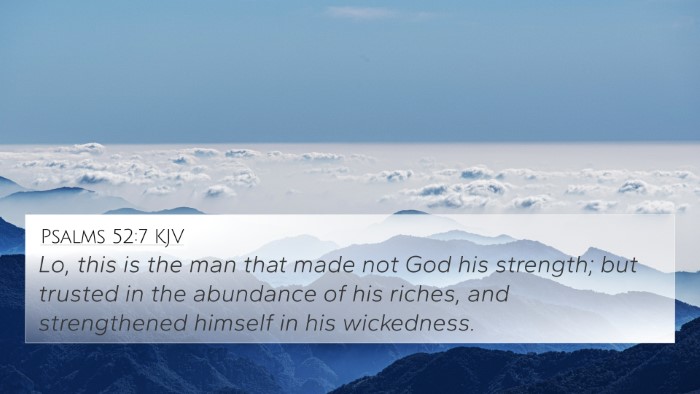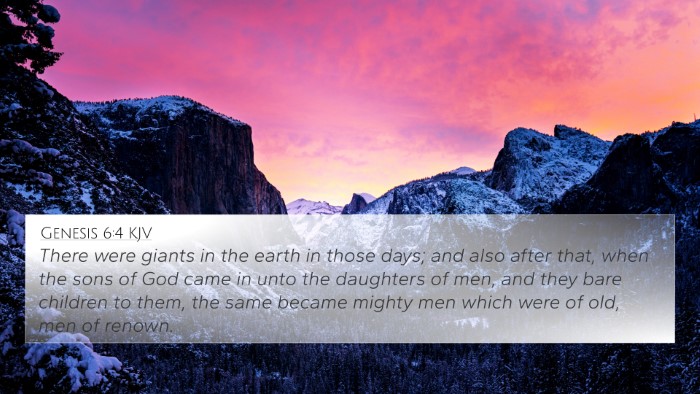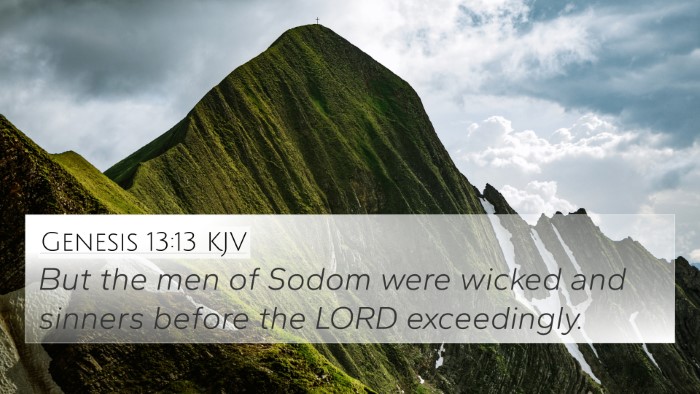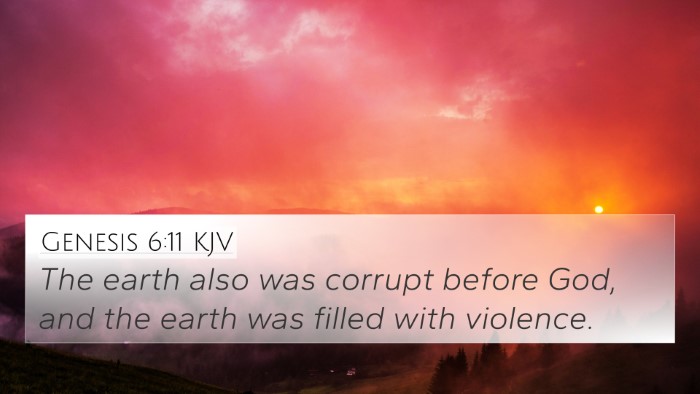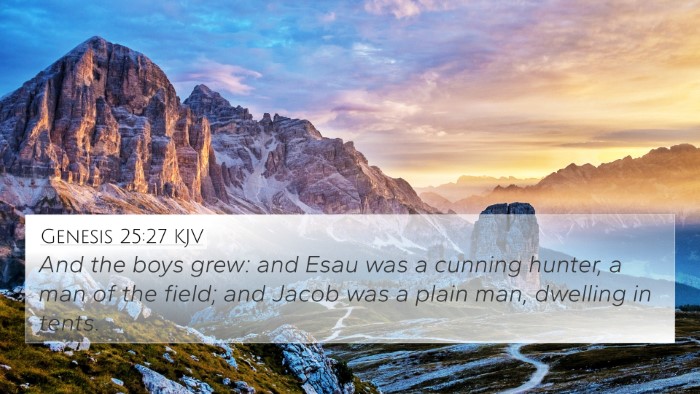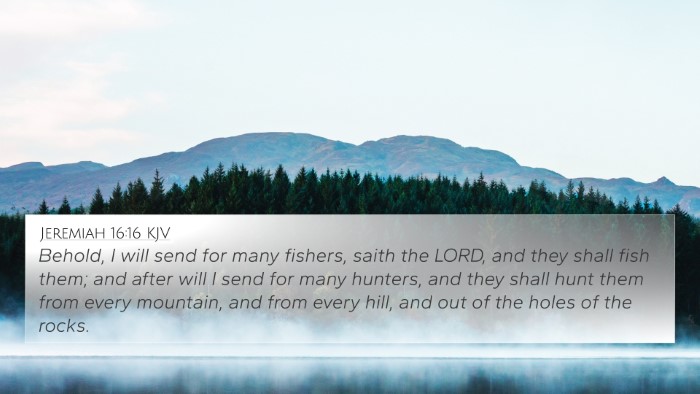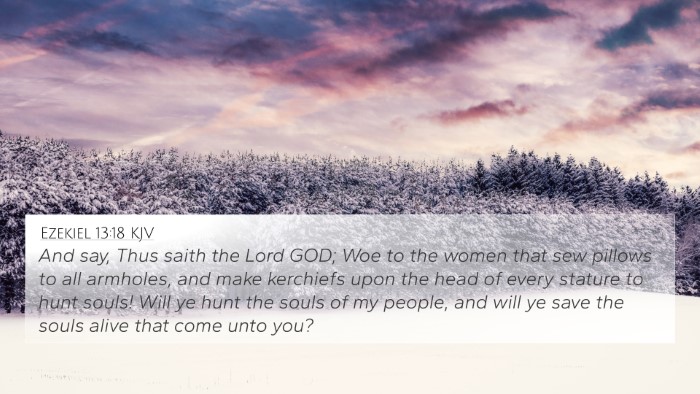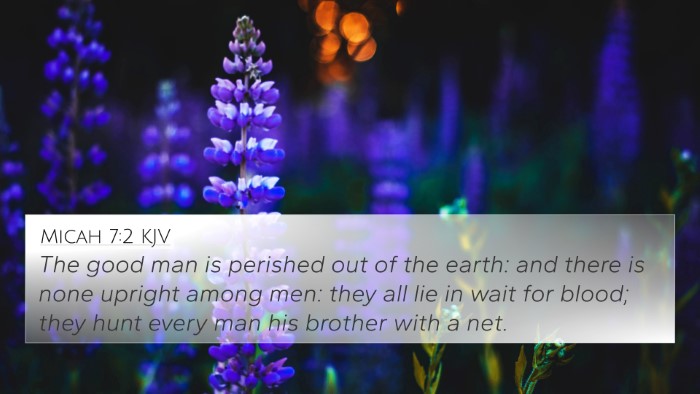Understanding Genesis 10:9
Scripture Reference: Genesis 10:9 - "He was a mighty hunter before the LORD: wherefore it is said, Even as Nimrod the mighty hunter before the LORD."
Summary of Genesis 10:9
This verse speaks of Nimrod, a significant figure who is described as a "mighty hunter" and highlights his connection with the LORD. The mention of him being “before the LORD” suggests not just a physical presence but an acknowledgment of his actions in relation to God’s will and judgment.
Commentary Insights
- Matthew Henry: Henry emphasizes Nimrod's prominence and character traits, interpreting him as a figure who represents defiance against God. He notes that his prowess as a hunter can be seen as both a commendable skill and a manifestation of his potential hubris.
- Albert Barnes: Barnes provides historical context, suggesting that Nimrod was perhaps a ruler or a leader known for his strength and violence. He remarks on the cultural implications of "mighty hunter," relating it to the origins of civilization post-flood, where such feats were critical for survival and dominance.
- Adam Clarke: Clarke interprets the verse with a focus on the dual nature of Nimrod’s legacy. He suggests that while Nimrod was celebrated for his hunting skills, this title also brings with it the warning of becoming a tyrant, emphasizing the delicate balance between strength and oppression.
Thematic Connections
This verse illustrates key themes of strength, leadership, and humanity’s relationship with God, which can be traced throughout Scripture. Nimrod's story serves as a reminder of both the gifts and pitfalls of power.
Cross-References for Genesis 10:9
- Genesis 6:11-12: The mention of violence on the earth connects with Nimrod’s might.
- Genesis 10:8-10: Contextualizes Nimrod's lineage and his rise as a figure of Babylon.
- 1 Chronicles 1:10: References Nimrod along with his attributes, enhancing our understanding of his character.
- Micah 5:6: Alludes to the Assyrian realm connected to Nimrod’s legacy.
- Hebrews 11:32-34: Discusses faith and the triumphs of warriors, hinting at what might happen to those like Nimrod.
- Zephaniah 2:9: Mentions the legacy of the Philistines, drawing a line to Nimrod's strength.
- Matthew 4:19: Jesus as a "fisher of men" contrasts the hunter aspect, highlighting different implications of leadership.
- Revelation 18:2: A prophetic mention of Babylon's downfall relates back to Nimrod’s beginnings.
- Isaiah 14:13-14: Discusses pride and ambition similar to the narrative of Nimrod.
- Genesis 11:1-9: Ties to the Tower of Babel, which is linked to Nimrod's ambitions.
Connections with Other Bible Verses
The narrative of Nimrod can be compared to other biblical figures who embody strength, leadership, and the moral dilemmas that accompany power. His story reflects both the potential for greatness and the risks of hubris.
Bible Verse Parallels
- Goliath (1 Samuel 17): Both are mighty figures of their time known for their strength.
- David (1 Samuel 16): David, in contrast to Nimrod, exhibits strength tempered with faith.
- Saul (1 Samuel 9-10): Saul’s kingship mirrors Nimrod’s leadership, exploring themes of authority and rebellion.
Inter-Biblical Dialogue
Genesis 10:9 opens a discussion regarding the ramifications of power and the importance of aligning one's pursuits with divine will. By examining various scriptures, readers can better appreciate the complexities of leadership and legacy.
Conclusion
Nimrod's reference as a "mighty hunter" before the LORD serves as a powerful metaphor for the strengths and weaknesses inherent in human endeavors. Balancing power with moral responsibility is a key theme that resonates throughout the Bible, inviting believers to reflect on their own lives and ambitions.
Utilizing tools for Bible cross-referencing can greatly enhance one's study experience. Engaging with various Bible concordances and cross-reference guides allows for deeper exploration of the intricate links between passages, enriching one's understanding of scripture.
